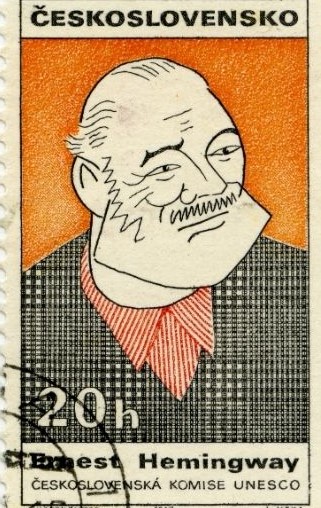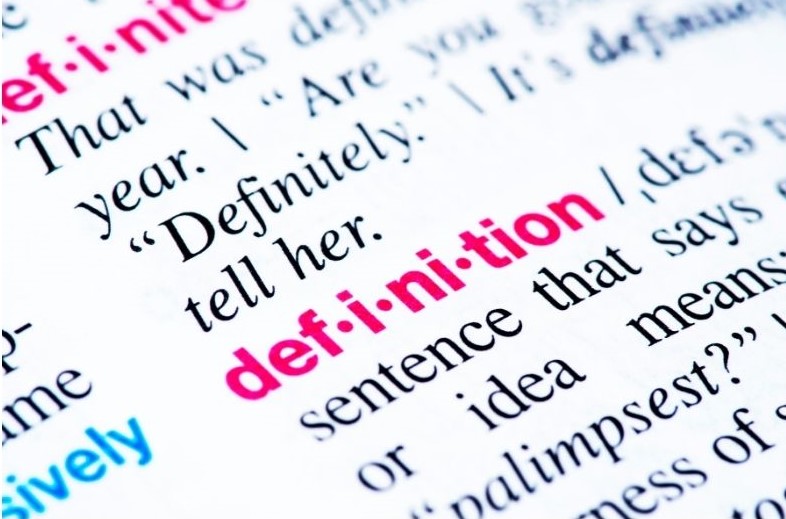Shelley’s Review: Cheryl’s writing is so extra! She’s so often on periodt (not to be confused with on her period). This particular post was fire. No cap! If I knew she wasn’t so lowkey, I would accuse her of trying to flex. My favorite word is trousers.

I love playing with words. The Language Police are always after me for inventing stuff and not playing by the rules. However, I am not alone in this game. There are plenty of people out there changing the words we use and the way we speak. Language is a living creature, subject to trends and innovation, with a wealth of examples of how our common dialect evolves over time and place.
In the current Digital Age, there is a trend to shorten the English language. Technology has made this easier to achieve. Writing about your laughter used to take the form of ha ha, not to be confused with the singular ha which means something more exclamatory. Four letters have been reduced to three: LOL. We needed to lose that extra letter. It was so cumbersome. The shortening of words is really nothing new. The word buttocks morphed into butt. Some people consider the word butt to be a crass word, like ass, but it is simply shortened from the formal, proper name and disparaged by people who don’t really know from which end their crapola flows.

Two-plus only!Now imagine you are learning the English language as a newly arrived, weary immigrant. Assholes of America may be screaming at you to “learn to speak American,” as you struggle with acronyms, abbreviations and local citizens who themselves don’t have a very good grip on the English language. My Bulgarian friend once offered me driving directions. “If you are not alone, you can take the hoove.” Uh, the what? “The hoove, the hoove, look, it is on the sign above your car…on the freeway…H O V, hoove.” Much is lost in translation. If you are from a simpler driving community, say anywhere not in New Jersey (where I learned to drive in circles), you may not be familiar with the trendy High Occupancy Vehicle lane.
Even my English friend Linda had a problem with our strange American branding of products. She told me and my husband that she stops by a convenience store on her way to work for a cup-a-lot. Noticing the blank stares on our faces, she walked to her kitchen, opened the cupboard and retrieved a very large plastic cup. “See,” she pointed to the cup. Printed on the cup was the word COPILOT. When we recovered, we explained that the word was copilot. She complained we made no sense. She wasn’t flying a plane. It’s a fucking barrel of caffeine, we insisted. That she drank… to wake her up… so she could drive to work…in the morning. Her companion in transit. Ah. You Americans. Ha! She’s one of us now!

Popular guyWhen my Russian friend Michael asked me if I’d read Hemingway’s novel Goodbye Weapons, it took me awhile to realize that we don’t use these words much anymore: A Farewell to Arms. If you type a Russian word into your translation app, it gives you the current English lingo. Something of the poetry of our language is lost with the disuse of words.
><
Our language is changing so rapidly that even our native citizens are having trouble keeping up. My cousin’s husband Ernie has posted ten times on Facebook in woeful, agitated tones, that he doesn’t understand what the word bae is all about. I suspect what he wants to say is that young people should not have the right to invent language. Ernie has the adaptability of a dinosaur.

Difficulty decipheringThe younger generation has always invented their own language, differentiating themselves from their parents. These days, parents are able to look up teen slang on the internet to determine if their kids are online discussing something they like (it’s lit) or posting nude photos of themselves (NIFOC)! Often these words or phrases catch on in general use and become part of the dictionary of the English language. Cool, huh? Just as likely, they fade into history—Farewell!
Language has an obligation to grow and change. It needs to reflect the growth or degeneration of humanity. If it didn’t, we’d still be using words like thee and thou and firkin (look it up). New words crop up in the dictionary every year. Take your pick: Webster’s or Oxford. Or Funk and Wagnalls –no longer being published as of this writing or sometime long before, but I just love saying Funk and Wagnalls, so I miss it. New words for 2018 included: deglobalization, dickish (yes, it means what you think it does), gaming disorder and bed-sharing (no, it does not mean what you think it does). These words are so new that my spell check wants to offer other words that come close to their spellings. Skittish, darkish or duskish were suggestions for dickish. Duskish, really?

When you need to mean what you say!
><
And 2020? Merriam Webster added 520 new words, terms and current cultural definitions in their latest dictionary. Their central criterion for these additions is the frequent use by many writers. Naturally, a massive event like the pandemic creates a plethora of creative, novel verbiage. Here’s a partial, COVID-related list without definitions, because you already have a close relationship with them and love means never having to wallow in redundancy.
Long-hauler, pod, bubble, epidemic curve, PPE, WFH, physical distancing and, our very favorite, herd immunity

HyggeGosh, that is so last year, though I expect we will be using this handy list for some time. I’ve found more robust, imaginative entries in our lexicon of neologisms (cool new words). High in my approval is the word hygge, not only for its meaning, but also because nearly nobody knows how to pronounce it (hu-ga) or what it actually means. Because the pronunciation is so off from the spelling (it’s not of English origin), I find myself immediately drawn to it. It means something that is cozy which gives one a feeling of comfort. Imagine Eliza Doolittle longing for a warm room and a cup of tea by the fire. In a normal winter, I would be all over that scene. Now its uber-familiarity sends me crashing around for different means of contentment.
Sapiosexual is an attractive word. It means having the hots for smart people. I have no idea who has been using this word, though I imagine it has been connected to people like Anthony Fauci, Neil DeGrasse Tyson and Kamala Harris. In addition, the title Second Gentleman, describing the VP’s husband Doug Emhoff, is a long-awaited term. Speaking of Dr. Fauci, iatrophobia (fear of doctors) seems to be all the rage among those for whom the word sapiosexual has no meaning.

After the foofaraw that was the 2020 election, Merriam-Webster added the following terms: Truthiness, a cushy word for the quality of a lie, as in it seems like it could be true but has no basis in fact. In a related term, deep fake was adopted to describe an image or recording that has been doctored to misrepresent how a person acted or spoke and has nothing to do with orgasms or how difficult it is to be sapiosexual.
The addition of new words, though confusing if you can’t keep up, is exciting and revolutionary. Modern shifts in language have given rise to generational and cultural identity, gender fluid norms (long have I resisted the singular they, but I’m working on it) and given dignity to our differences (think differently-abled).

Bus conversationsOne of my bus mates complained one morning that his roommate was constantly inventing new words, creating an unfair balance in their communications. I instantly jumped to the roommate’s defense. It’s perfectly legitimate to add a prefix or suffix to an existing word in order to streamline its meaning using fewer words. It’s a joyful activity I employ nearly every day in my own writing. I often get push back from Word as to the illegitimacy of my inventions. I simply cannot abide this form of taxonomic tyranny (and downright stupidness).
As a writer, I appreciate the joy and the work of playing with words. My digital thesaurus is a treasured friend and constant companion. Finding that just right word which gives my communication its spark and recognition can be a chore, but once that gem is found and aptly placed, I find a deep satisfaction in a job well-done. Sometimes, I just have to make up a word which can convey meaning with a hint of jocularity for the sake of my own cozy comfort. Hey, my new hygge!

Must be done dailyWords give definition to our lives…literally! Avid readers will surely relate to finding that perfectly crafted sentence in the book they’ve been devouring. We can savor words like a fine wine or a deeply satisfying piece of chocolate. My favorite word in the English language is cavort. It’s such fun to say…and do. I’ll wrap up this rap as it’s getting duskish and I need to do some heavy-duty cavorting before I traipse on over to the kichene and boil a pot of toil and trouble on the hob. Farewell and happy cavorting through the English language.
What’s in your dictionary?
Cheryl
Guest Editor Shelley has got some writing chops. I would never mince words with her, even in pun. And, yes, it is nice to have somebody tell me how to spell properly and use a normal word here and there.




Words are fun! When writing my poetry I’m always looking forward alternative words. I use Rhymezone.com. It gives rhyming words and synonyms. I scan the lists and 99.9% of the time, I find the word that feels right. 😉
Rhymezone sounds fun!
You probably always win when you play Scrabble!
I never play Scrabble. But if I did, I’m sure I’d win, at least once in a while!
That didn’t make sense! Do you always win when you play Scrabble?
Have you ever listened to the Slate podcast “Lexicon Valley?” Its lots of fun.
I have not listened. I’ll have to give it a try. Thanks!
OK, so, I have cousins who still use thee and thou in conversation in their immediate family. It was something their parents instilled in them. It comes from our Quaker heritage. My maternal grandparents used the terms in everyday conversation with anyone. Also, I use firkin with some frequency, and I bet it is not unheard of that your husband uses it occasionally as well! However, I get your point, and agree with it.
In a tangentially related area, one of my pet peeves, before I retired, was the overuse of contractions and acronyms in my workplace. My objections to this habit were with terms and words related to our business (geophysical software). What I observed was, typically within the marketing department, where acronyms would be thrown around with the intent of making people who really did not understand the science seem like they were hip and in the know. Contractions were common in the support teams, where it can be cumbersome to use a series of long words repeatedly when describing usage or troubleshooting. This I understand, but what really got under my collar was the contraction of product names, because we did not sell or license anything using the contractions, and therefore I considered it just lazy behavior. But, of course, that was just me. Literally.
Thee and thou are obviously not completely gone, they are still in the dictionary. I have never heard my husband use the word firkin, though I get why some brewers may still find occasion to use it. My mom had one, so that’s how I know the word. If I was speaking with your relatives, I could use it as a substitute for another F word, though as I explain to others who employ this maneuver, it still means the same thing! I gained some wonderful writing skills in my technical writing classes, but it’s not a form of expression I could adhere to. Acronyms belong in texts to one’s friends. TTFN! and, thanks for reading!
Goodbye Weapons—haha! As an ESL teacher, one of my fave things was seeing the English language through my students’ eyes. Loved this piece, Cheryl!
How delightful! Thanks Annie!